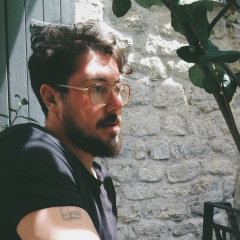Удивительно, насколько тонко различали понятия "ум", "разум" и "рассудок" святые отцы, и насколько их описания пересекаются с йогой, буддизмом, адвайтой и современными учителями, типа Экхарта Толле. В этих терминах, например, выражение "ум за разум зашел" точно описывает состояние человека, застрявшего в ловушке рационального мышления и бесконечного конструирования моделей.
Любопытно, что христианство не одобряет медитацию, хотя практика созерцания ума, предписываемая отцами, по сути ей и является. Возможно, это связано с собором 869 года, когда церковь упразднила понятие "дух", как неотъемлемую часть человека, оставив ему лишь тело и душу (в святоотеческих текстах "дух" и "ум" часто являются синонимами). Видимо, с тех пор созерцание своего духа стало греховным, а всем надлежало трудиться и не лениться. Впрочем, в отличие от католической, в православной церкви вроде бы до сих пор допускается трихотомия, то есть наличие у человека собственного духа. Но созерцать его все равно нельзя :)
Любопытно, что христианство не одобряет медитацию, хотя практика созерцания ума, предписываемая отцами, по сути ей и является. Возможно, это связано с собором 869 года, когда церковь упразднила понятие "дух", как неотъемлемую часть человека, оставив ему лишь тело и душу (в святоотеческих текстах "дух" и "ум" часто являются синонимами). Видимо, с тех пор созерцание своего духа стало греховным, а всем надлежало трудиться и не лениться. Впрочем, в отличие от католической, в православной церкви вроде бы до сих пор допускается трихотомия, то есть наличие у человека собственного духа. Но созерцать его все равно нельзя :)
It is amazing how subtly the concepts of "mind", "mind" and "reason" were distinguished by the holy fathers, and how much their descriptions intersect with yoga, Buddhism, advaita and modern teachers, such as Eckhart Tolle. In these terms, for example, the expression “the mind went beyond” accurately describes the state of a person who is stuck in the trap of rational thinking and the endless construction of models.
It is curious that Christianity does not approve of meditation, although the practice of contemplation of the mind prescribed by the fathers, in fact, is. Perhaps this is connected with the Cathedral of 869, when the church abolished the concept of "spirit" as an integral part of a person, leaving him only body and soul (in patristic texts, "spirit" and "mind" are often synonymous). Apparently, since then the contemplation of one’s spirit has become sinful, and everyone should work and not be lazy. However, unlike the Catholic church, the Orthodox Church seems to still allow trichotomy, that is, the presence of a person’s own spirit. But you can’t contemplate it anyway :)
It is curious that Christianity does not approve of meditation, although the practice of contemplation of the mind prescribed by the fathers, in fact, is. Perhaps this is connected with the Cathedral of 869, when the church abolished the concept of "spirit" as an integral part of a person, leaving him only body and soul (in patristic texts, "spirit" and "mind" are often synonymous). Apparently, since then the contemplation of one’s spirit has become sinful, and everyone should work and not be lazy. However, unlike the Catholic church, the Orthodox Church seems to still allow trichotomy, that is, the presence of a person’s own spirit. But you can’t contemplate it anyway :)
У записи 12 лайков,
2 репостов,
268 просмотров.
2 репостов,
268 просмотров.
Эту запись оставил(а) на своей стене Анатолий Никитин

































